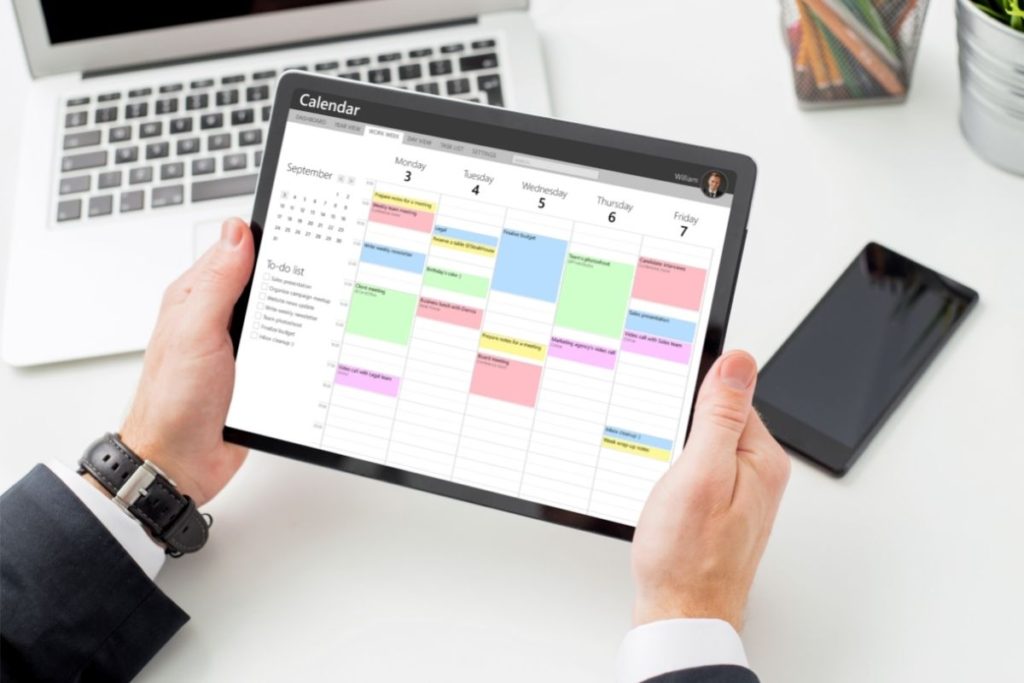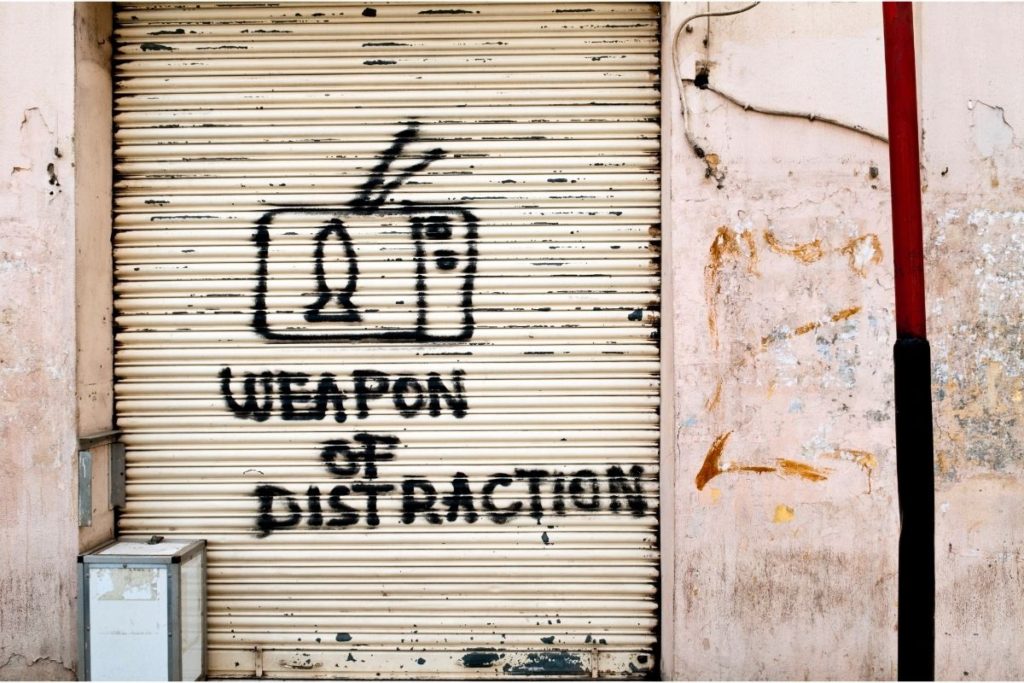One of the great perks of being a digital nomad or a freelancer is that you can work from anywhere, at any time. But without careful time management, this life of supposed freedom can quickly turn into a spiralling mess of missed deadlines, frustrated clients, and dwindling finances.
I’ve been freelancing for half a decade now, and the start of the journey was beset with a lot of time management issues. I was severely procrastinating, getting distracted by anything and everything in my home, and I would then work monster shifts at my kitchen table to hit deadlines and consequently deliver poor-quality work.
It was a recipe for disaster, and my actions definitely cost me a few clients early on. Thankfully, I got my act together, learned some valuable time management techniques, and now I’m in a much better place.
If any of the above sounds familiar, fear not. I was once like you, and I’m here to help. I’ve put together a list of time management tips for freelancers that should steer you clear of many of the mistakes I made early in my freelancing career.
But before we delve into those, let’s briefly cover why time management is so much more important when working as a freelancer than in a salaried job.
Why Time Management Skills Are So Valuable as a Freelancer
There are so many reasons why time management is vital as a freelancer. However, the number one aspect you’ve got to keep in mind is that you are your own boss. You’re not being paid to sit at a desk for eight hours; you’re being paid to complete specific tasks and deliverables.
We’ve all had those days when motivation is down, distractions are everywhere, and you just feel like having a slower, less productive day. Well, in a job, that’s fine (well, your employer might disagree) because you’ll still get paid the same amount for that day’s output.
However, as a freelancer, that slower day means you’re making less money. Therefore, time management is key to ensuring you make the most of every working hour and avoid any major dips in productivity.
That’s without even mentioning that missed deadlines, rushed work, and poor deliverables will all damage your reputation as a freelancer and possibly lose you clients.
So, with the importance of time management covered for you, let’s get into the nitty-gritty of those all-important time management tips for freelancers.
1. Track Your Time with Software
The biggest wake-up call to my bad time management habits was the moment I started tracking how long I was spending on tasks. Suddenly, when all those YouTube rabbit holes and social media browsing sessions were staring back at me in black and white (or rather, green and red), I was much more mindful of how I was spending my time.
There are a few great pieces of software you can use to do this. Toggl is one of the most popular. It’s free and offered as both a desktop and mobile app. It’s the tool I use, and I couldn’t recommend it highly enough, namely because it integrates with a lot of the other workflow tools I use, including Trello.
Although I haven’t used it myself, Clockify also comes highly recommended, and it seems to have far more by way of insights than Toggl does. Why not try both and see which you prefer?
2. Time Block Your Days
One of the best pieces of advice I ever received was to time block my days. If you’re unfamiliar, that’s the practice of assigning defined periods of time to specific tasks. Time blocking is often used by people who follow the Pomodoro Technique, which we’ll touch on later.
I use time blocking to assign a task a set period of time for completion, which I then collate together into an overall day of time blocks. It means that as soon as I’m done with a task (such as an order on Fiverr), I already know what I need to do next and can get straight into it without any wasted time. Time blocking is an excellent way to maintain momentum throughout your day, which is something I’ve long struggled with, particularly during the mid-afternoon energy lull.

3. If It’s a Quick Task, Take Care of It Right Away
Small but easy tasks will regularly pop up to interrupt your day. While some may advise waiting and blasting through them all at the same time, I’ve found that handling them quickly and effectively there and then is the best way to deal with them.
The thinking is that by completing these small tasks as and when they come up, you’re avoiding the situation where you have a list of a dozen tiny things staring back at you, which can be overwhelming and make it harder to focus on the bigger picture tasks. I’ve started to follow this advice recently and it’s really helped with my productivity, so now I’m passing it on to you as one of my tips 🙂
4. Ignore Your Texts, Emails, and Other Communications Outside of Designated Time Blocks
Building on the above point, unless it can be responded to or dealt with in less than five minutes, ignore any incoming texts, emails, or other communications until you’ve completed your current task. In fact, if you can help it, don’t even look at them! Out of sight, out of mind and all that.
It’s important to remember that, as a freelancer, you are in control of your day and how you spend your time. Just because someone has sent you a message, it doesn’t mean you have to drop everything to deal with it right then and there. Of course, there will be exceptions to this rule, but in general, try and stick to it as best you can.
Then, as part of your time blocking strategy, assign X amount of time each day to go through your emails, respond to messages etc.
5. Automate as Much as You Can
No matter what industry you happen to be freelancing in, there are always menial tasks that can be put on autopilot. Whether it’s setting up email filters or templates, recording your time, or scheduling social media posts, a little bit of automation can go a long way.
Not only will it save you time in the long run, but it will also help to declutter your mind and give you more space to focus on the more significant tasks that actually require your attention.
6. Take Care of Your Most Important Task for the Day First
I’m a big believer in tackling the most critical, challenging, or time-consuming task first thing in the morning. Think about it, your willpower is at its highest point, your energy levels are up, and there’s a good chance you won’t have any distractions to deal with yet.
It can be tempting to put off the more challenging tasks until later on in the day, but I’ve found that by taking care of them first thing, I get them out of the way and can enjoy the rest of my day stress-free.
This technique is often referred to as “eating the frog”. In other words, you get the most difficult, daunting task out of the way first, and the rest of the day seems downhill in comparison.
7. Use the Pomodoro Method (Tweak it to Suit You)
To be honest, I’ve never been a fan of the Pomodoro method. If you’ve never heard about it before, it’s the concept of working (and I mean working, no distractions) for 25 minutes and then taking a break for 5 minutes before starting the process over again.
As a writer who works on an article-by-article basis, this technique is useless as just as I’m getting into a rhythm with a piece, I would have to stop mid-train of thought and try and regain that momentum five minutes later.
That’s why I’ve tweaked it to suit me. It turns out that ultra-focusing for 50 minutes is roughly what it takes to research and write one of my articles. I then take a 10-minute break to have a drink, go to the loo, or browse social media before refocusing on the next task (usually another article).
So, when utilising the Pomodoro method, make sure you tweak it to suit your working style. Otherwise, it’s going to do more harm than good.
- 6 of the Best Work Locations for Freelancers

- 15 Ways to Protect Your Business From an Online Breach

- 12 Ways To Increase Your Brand Visibility

- 6 Tips for Managing Remote Employees More Effectively

8. Give Yourself Set Working Hours
It seems strange to give yourself set working hours when you’ve left a job to gain more freedom. However, I’ve found that by setting working hours, I’m more likely to take breaks and enjoy my evenings and weekends guilt-free.
It also allows me to be more productive during the day as I know I can’t work late into the night if I want to avoid burnout.
Of course, this isn’t always possible, especially when you first start out freelancing, as you’ll likely have to put in some long hours until you build up a client base. But once you’re established, make sure you give yourself set working hours so that you can maintain a good work-life balance.
9. Take Time for Yourself
This ties in nicely with the previous point. Once you’ve given yourself set working hours, make sure you stick to them. That means taking time for yourself every day, even if it’s just 30 minutes.
Use this time to do something that makes you happy and relaxes you. This could be reading, going for a walk, listening to music, or watching TV. Whatever it is, once you’ve finished for lunch or finished for the day, invest time into “switching off.”
I’ve undoubtedly been guilty of working late into the night and on weekends, but I’ve found that by taking at least two to three hours out for myself every day, I’m more productive and less likely to burn out.
10. Rid Yourself of Distractions
Getting rid of distractions was one of the most important steps I took to regain control of my time. I got rid of social media apps from my phone, blocked sites such as YouTube and Reddit on Google Chrome during working hours using the BlockSite extension, and moved my home office setup away from the TV and other potential distractions.
Once I had literally no avenues left for procrastination, I was able to focus solely on my work and get tasks done much quicker. It’s not always possible to eliminate all distractions, but even making a few small changes can make a significant difference to your output.

11. Change Up Where You Work
Sitting down at the same home office desk, day-in, day-out, can quickly become monotonous. If you’re finding yourself struggling to focus, or simply wanting a change of scenery, there’s no harm in working from a different room for a day or even going to your local coffee shop.
I’ve worked in a coffee shop, a pub, a local library, and I even had a desk in a co-working space for a while to help me focus and stay productive with my time.
Time Management is Vital to Your Success as a Freelancer, So Find Techniques That Work for You
There’s no one-size-fits-all solution when it comes to time management, but I hope these time management tips for freelancers have given you some ideas of where to start. Time management is an ongoing process, and you’ll likely find yourself tweaking your approach as you go along. I know I certainly have.
Just remember to be patient, give yourself breaks, and most importantly, don’t beat yourself up if you have the odd day (or week) where everything goes to pot. We’re only human after all!
